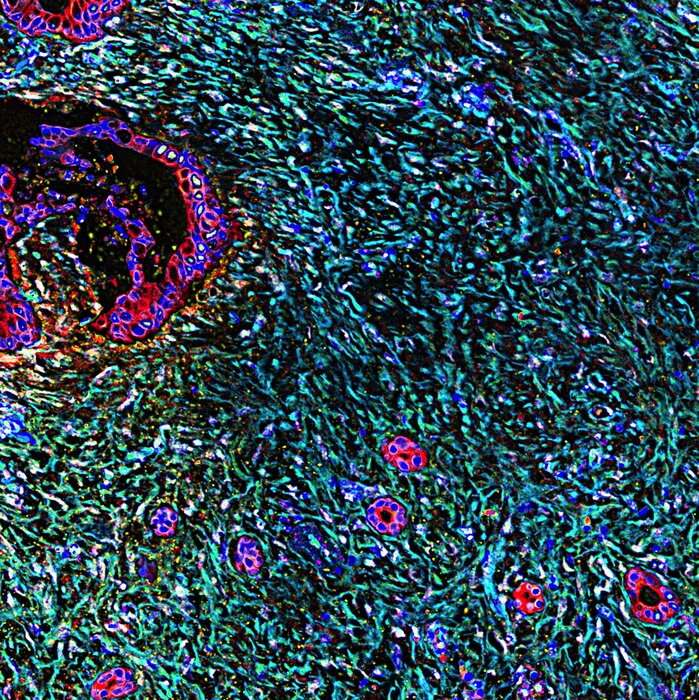The first positive signs come from a personalized messenger RNA vaccine against the most widespread and aggressive form of pancreatic cancer, known as pancreatic ductal adenocarcinoma: in the phase I clinical trial it caused an increase in the immune response of patients and delayed recurrence, when used in combination with other treatments . The therapeutic vaccine, developed in a study published in the journal Nature and led by the Memorial Sloan Kettering Cancer Center in New York, is tailored to each individual, as it is based on the specific proteins produced by each individual.
Pancreatic ductal adenocarcinoma is the most common form of pancreatic cancer. It is a very aggressive disease, with very low survival rates and a prognosis usually less than 5 years: a combination of surgical and other therapies can delay recurrence somewhat, but with poor success rates. However, recent studies have shown that most patients with this type of cancer have high levels of new antigens, i.e. proteins located on the surface of cells that emerge on tumors as a result of DNA mutations. These proteins, therefore, can become the target of personalized vaccine therapies, with the aim of improving the outcome of treatment.
This is the path attempted by researchers led by Luis Rojas and Zachary Sethna, who administered their mRNA vaccine to 16 patients along with chemotherapy and immunotherapy, starting a phase I clinical trial. The purpose of this phase of the trial is above all to study the safety of the drug and the presence of any side effects: for this reason usually the participants are healthy subjects, but in this case the authors of the study involved people already sick. The results show an increase in immune response in 50% of patients, also related to longer relapse times after 18 months, while subjects who had no improvement in immune system activity experienced worsening of the disease after an average of 13.4 months.
Positive signs from mRNA vaccine for pancreatic cancer
2023-05-11T08:36:26.260Z
Highlights: The therapeutic vaccine is tailored to each individual, as it is based on the specific proteins produced by each individual. In the phase I clinical trial it caused an increase in the immune response of patients and delayed recurrence, when used in combination with other treatments (ANSA) Pancreatic ductal adenocarcinoma is the most common form of pancreatic cancer. It is a very aggressive disease, with very low survival rates and a prognosis usually less than 5 years.

The first positive signs come from a personalized messenger RNA vaccine against the most widespread and aggressive form of pancreatic cancer, known as pancreatic ductal adenocarcinoma: in the phase I clinical trial it caused an increase in the immune response of patients and delayed recurrence, when used in combination with other treatments (ANSA)












